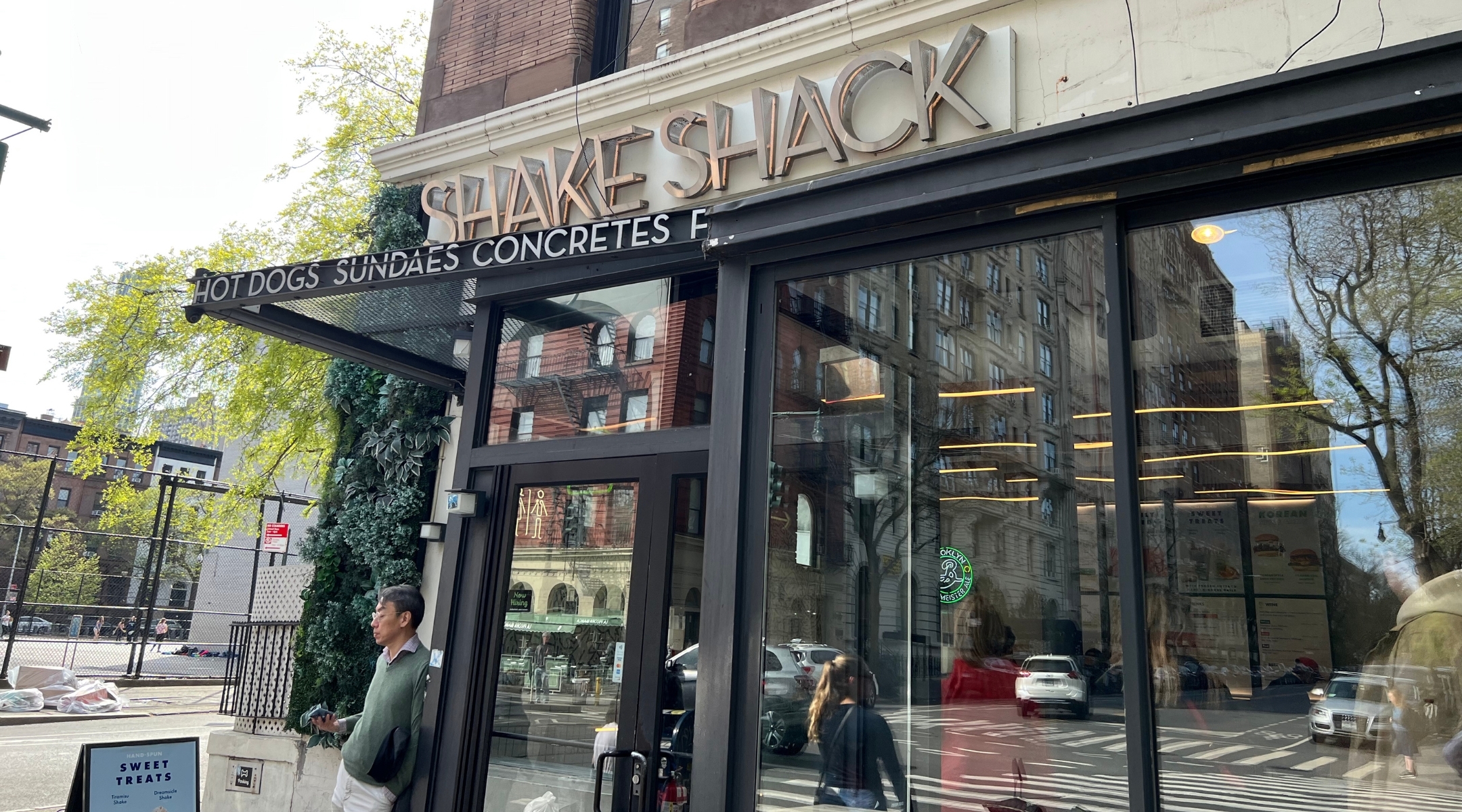Shake Shack is coming to Israel in 2024, bringing its burgers and custard to Tel Aviv
The company did not answer questions about whether any of its 15 planned locations would be kosher — something that would make its signature products impossible to pair

American burger and shake franchise Shake Shack is set to open in Israel in 2024. (Courtesy Jackie Hajdenberg)
(JTA) — Shake Shack, the American fast-casual restaurant chain famous for its burgers and milkshakes, is heading to Israel.
The chain announced Wednesday on social media that a location will open next year in Tel Aviv, which has a robust burger scene — including local chains such as Moses, Burgerim and Black Bar ‘n’ Burger and international franchises including Burger King and McDonald’s. Over the next decade, the company announced, it plans to open 15 locations across Israel.
“We have long admired the rich and diverse food culture of Israel,” Michael Kark, chief global licensing officer of Shake Shack, said in a press release. “We couldn’t be more excited to arrive in Tel Aviv and reach 15 Shacks across Israel by 2033.”
In keeping with its international strategy — Shake Shack has 120 international locations, in addition to its 240 in the United States — the company says it will “collaborate with local purveyors and producers to create a one-of-a-kind Shack experience unique for the Israeli community.” Shake Shack’s Dubai restaurants offer up a “Falafel Shack” patty, for example. Its franchises in South Korea and Japan, meanwhile, have red bean and cherry blossom-flavored shakes.
Shake Shack did not offer details about its local products. The company also did not respond to a request for comment or to questions about whether any of its offerings in Israel would be kosher — something that would make its signature products impossible to pair because they would combine milk and meat.
Shake Shack will partner with two local business conglomerates to set up shop in Israel. The deal has been in the works since at least November, according to the Israeli economic publication Globes.
“We are thrilled to bring the iconic Shake Shack experience to Israel and share our passion for high-quality ingredients, hospitality, and community,” Harel Wizel, a partner in the venture and CEO of Fox Group, a leading Israeli fashion company, said in the press release.
Shake Shack launched in 2001 as a cart in New York City’s Madison Square Park, as a fast casual concept from the high-dining impresario Danny Meyer, who is Jewish and has connected his philanthropic ventures to Jewish values. Several years ago, when he opened Shake Shack’s first location in his native St Louis, he said he had no plans to open in Israel, which he had just visited for the first time.
Meyer told the St Louis Jewish Light that he had spotted a kiosk that “looked an awful lot like Shake Shack” while walking Rothschild Boulevard in Tel Aviv, where the median is dotted with tiny cafes.
“As it turned out, it was opened by a guy who worked for me many years ago,” he said. “And on a rainy day, they were packed.”
Shake Shack is the latest in a series of chains to open its doors in Israel. The convenience store chain 7-Eleven opened its first franchise in Israel this year, in Tel Aviv’s Dizengoff Center mall. And the partners who brought Shake Shack to Israel also recently struck an initial deal to bring the global cafe franchise Pret A Manger to the country.
Past openings of major international food and drink franchises in Israel have had a mixed record. McDonald’s did not open any Israeli outposts until 1993 due to boycotts from the Arab world; now, it offers some kosher outposts but does not operate in Israeli West Bank settlements. In 2021, Ben & Jerry’s, the U.S. ice cream chain, announced that it would not sell in what it termed “Occupied Palestinian Territory,” sparking a court battle that ended with the pints still on grocery shelves in Israeli settlements.
And after a brief experiment in Israel, Starbucks closed down its operations there two decades ago, due to what analysts attributed to competition from more established local cafes.
This article originally appeared on JTA.org.















